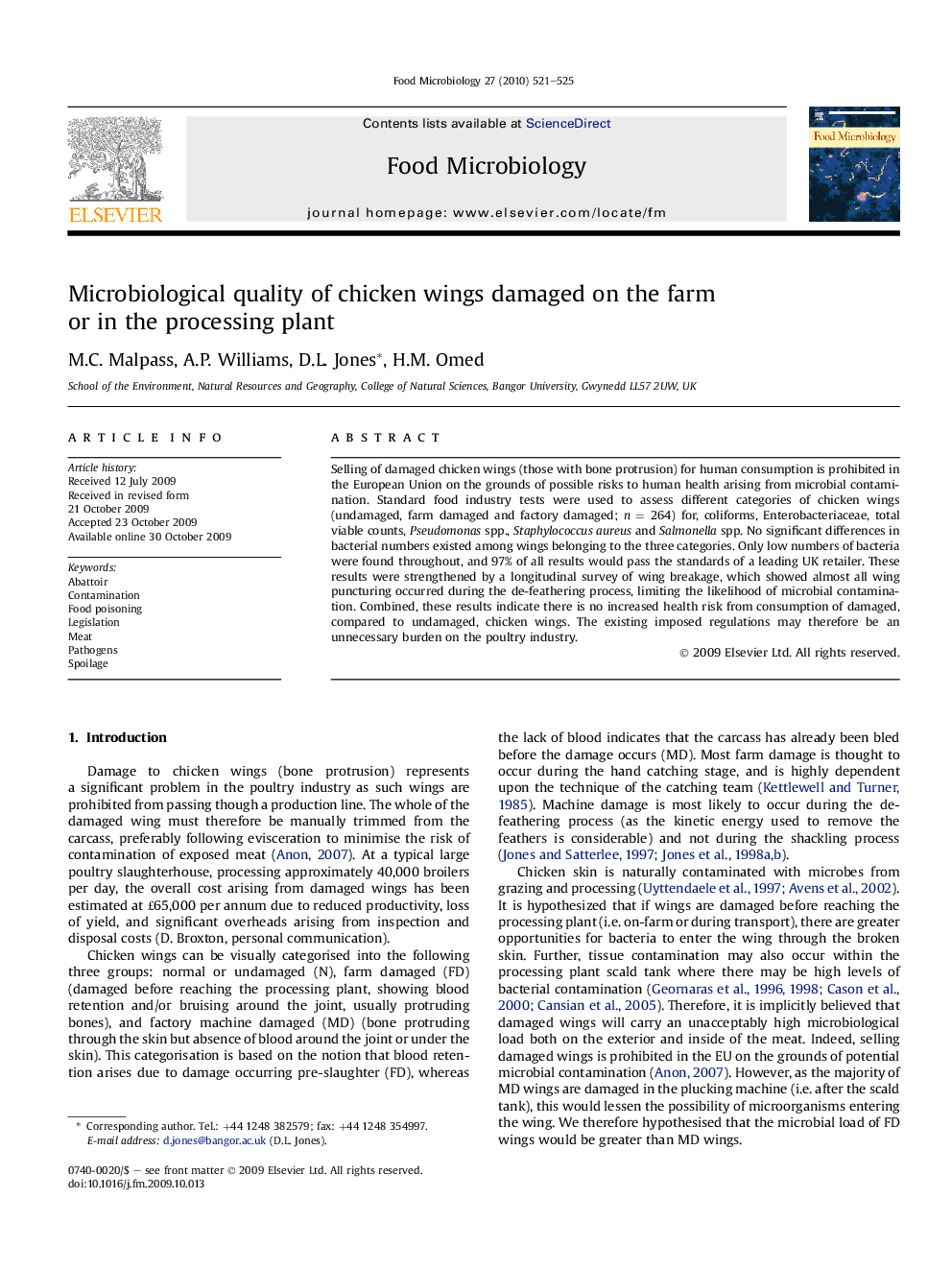| Article ID | Journal | Published Year | Pages | File Type |
|---|---|---|---|---|
| 4363328 | Food Microbiology | 2010 | 5 Pages |
Selling of damaged chicken wings (those with bone protrusion) for human consumption is prohibited in the European Union on the grounds of possible risks to human health arising from microbial contamination. Standard food industry tests were used to assess different categories of chicken wings (undamaged, farm damaged and factory damaged; n = 264) for, coliforms, Enterobacteriaceae, total viable counts, Pseudomonas spp., Staphylococcus aureus and Salmonella spp. No significant differences in bacterial numbers existed among wings belonging to the three categories. Only low numbers of bacteria were found throughout, and 97% of all results would pass the standards of a leading UK retailer. These results were strengthened by a longitudinal survey of wing breakage, which showed almost all wing puncturing occurred during the de-feathering process, limiting the likelihood of microbial contamination. Combined, these results indicate there is no increased health risk from consumption of damaged, compared to undamaged, chicken wings. The existing imposed regulations may therefore be an unnecessary burden on the poultry industry.
